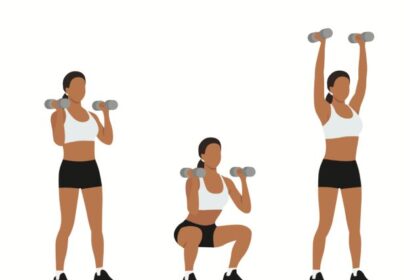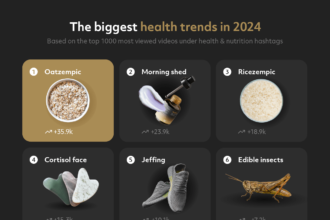Almost half of U.S. states have banned or restricted trans youths’ access to gender-affirming puberty blockers, hormones, and surgery — and many of the same states are also targeting trans youths’ participation in sports. Twenty-three states ban trans youths from participating in school sports consistent with their gender identity, with some laws focusing on students from kindergarten through 12th grade and others including, or exclusively applying to, students at the collegiate level.
The bans may have consequences for the health of trans youth, according to a new perspective by a group of pediatric sports medicine physicians and health services researchers published in JAMA Pediatrics. “A large body of research has demonstrated that physically active youths have improved mental health outcomes, greater self-esteem and social supports, increased school retention rates, and lower risks for chronic disease and teenage pregnancy,” the authors write, noting their concern that the bans could contribute to “lasting deterioration of the physical and mental health of this at-risk population.”
The authors also note that even without bans, trans youth access sports at lower rates than their cisgender peers: Social and structural barriers at school, such as a lack of private locker rooms, can also keep them from participating.
Alexander Sin, a sports medicine fellow at Vanderbilt University Medical Center who co-authored the article, spoke with STAT about the bans’ potential effects on young trans people.
The conversation has been edited for length and clarity.
How is youth participation in sports a health issue?
I want people to just try to throw politics out — we are thinking about kids here. So these regulations are often K-12, right? We start from kindergarten. How competitive is kindergarten? And why do we care if there is this little boy who is assigned as female at birth, who wants to play as a boy? What is fairness?
They’re trying to build a community and trying to fit in. The LGBTQ population is already told that they’re “other,” and they’re different. We don’t know if that causes the higher risk of having mental health issues, but we do see an association between being LGBTQ+ and having mental health issues such as depression, anxiety, and high suicidal risk overall.
We also know that sports activities for children are important for development, as it can affect their confidence as they find their tribe and their friends. To share experiences with everyone else is a part of growth and maturation. It’s also shown to be beneficial to things like their physical health. It’s also important for other things like reducing teenage pregnancy and school dropouts.
At the end of the day, what is most important? Is it that we have more kids playing and allow kids to play, or does it matter who gets a medal at a third-grade competition? I think our emphasis needs to be on their health and wellness. We don’t have to put so much emphasis on who’s winning.
Trans girls are the target of most legislation restricting trans participation in sports because of a perceived physical advantage they may have over cisgender girls. How much of that is based in scientific research?
Our medical community is still learning. I would say this is still an early stage, but there is conflicting evidence. [Some research has found that] trans women are superior to cis women because of certain strength and speed measures.
But the problem with this is that it doesn’t translate to sports performance. It’s not like you squat more and that translates to you jumping higher, or you can do a heavier bench press, so you can throw things further. There are also techniques and other parts that play into it, because otherwise the strongest person would just win all the medals, and that’s not true.
The other thing we talk about too is, yes, we look at how [trans females] went through male puberty, let’s say. They have a bigger skeletal frame, they have bigger muscles and things like that because they developed that way because of sexual dimorphism. But if you have them undergo hormone therapy, we take away the muscle strength to a certain degree. And will that still translate to the same kind of advantage? You have a bigger frame, but your muscles are now not designed for that frame.
And there are a lot more nuances in this. There are a lot of barriers for [trans athletes] to break through. Athletes are not only about numbers and strength, speed, coordination. There’s also the mentality and psyche of the athlete. So I think being able to break through the barriers and be able to access sports and being able to advocate for themselves to get to a spot there also means a lot, and could play a role in why someone might be a better athlete.
What is the role of physicians in all this?
As physicians seeing children, teenagers, and young adults, it’s important to assess and see, are they physically active? We want to make sure that their mental health is taken care of, that they have sports activities, that they have a support group and are not bullied in school. Children slowly develop their gender identity as they mature, so it’s important to be able to create an inclusive environment by doing things like having all-gender bathrooms in your clinic and being an ally or a visibly out physician.
Sports medicine specialists can go to middle school and high school sports events and cover them. Go to the training room, talk to the school nurse — or high schools usually have athletic trainers who take care of the kids’ sports injuries. Be in communication with them and see what kind of resources they need.
I do recognize there is also a barrier for doctors ourselves to really understand the intricacies of the laws. But that’s important for us, to know what is most up to date and applicable to our community, so we can talk to parents, kids, and coaches about what is happening and what other avenues of sports [trans youth] can be participating in. We should know the laws of our state, our community, and create a safe space overall. And we can work from there as individual physicians.
The American Academy of Pediatricians, the American Academy of Family Physicians, and the American Medical Association are all pro transgender youth participation in sports. And it’s important for us, as a bigger group, to advocate for their rights and their overall well-being. From what we can understand from this literature, this is important for them, and we want to make sure we protect their access to sports as a whole.









